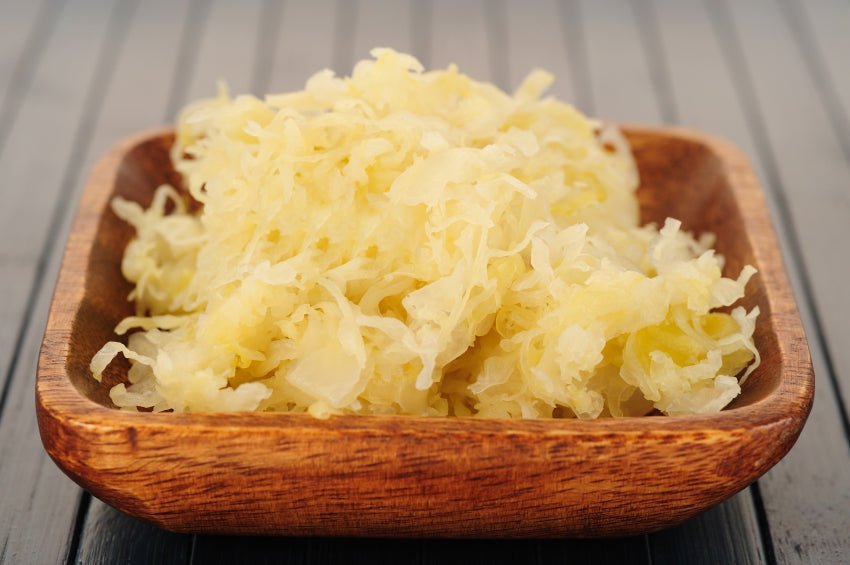Lactobacillus plantarum is a species of probiotic bacteria commonly found in the human gut, saliva, and certain foods. The name “plantarum” refers to it being a “species of the plants.” It’s present in foods such as sourdough bread, sauerkraut, kimchi, and olive brine.
A Hardy Strain Of Probiotic Bacteria
L. plantarum is one of the most ‘hardy’ strains of probiotics, thanks to its ability to withstand a huge variety of different temperatures. In fact, it can survive in any environment between 1-60 degrees Celsius. It can also adapt to a wide scale of atmospheric pressures. It can grow at temperatures between 15-45˚C and at pH levels as low as 3.2.
Lactobacillus plantarum works by fermenting sugars to produce lactic acid, ethanol or acetic acid, and carbon dioxide. It’s also able to tolerate both acid and bile salts, which means it can survive the journey through the human gastrointestinal tract.
In fact, several studies have shown that L plantarum is undeterred by problematic gut environments and even antibiotic treatment. L. plantarum continues to maintain the health of the gut and keep pathogens at bay.
Bad News For Pathogenic Bacteria
L. plantarum has been shown to help prevent pathogenic bacteria or diseases from establishing themselves in the gut. There’s also evidence that Lactobacillus plantarum induces an immune response that may protect the body from infectious diseases.
Other studies show that this bacterium has powerful adhesive properties which allow it ‘stick’ to the gut wall and fight off pathogens like Candida albicans. It’s also beneficial for deterring bacteria such as E Coli.
Repairing Your Gut
Another major benefit of L. plantarum is its ability to help repair the intestinal lining. It does this by using mannose-specific adhesions, which allow it to compete with both gram- positive and gram-negative pathogenic strains for receptor sites.
It also provides valuable nutrients in the mucosal membrane. This means that L. plantarum is able to secretes anti-microbial substances that help to stop pathogenic colonies from forming in the gut.
Anti-Inflammatory
All of these amazing characteristics mean that L.plantarum is especially beneficial for inflammatory diseases of the gut, such as irritable bowel syndrome, Crohn’s disease and Colitis.
L. plantarum also harbors anti-inflammatory properties, which can help with autoimmune diseases. By reducing brain inflammation, it can also help with regulating mood and improving depression. It’s also been suggested that children with neurobehavioral disorders such as autism and ADHD benefit from L. plantarum as it helps to relieve their digestive issues.
Improving Your Overall Health
Like other probiotics, L. plantarum also help with digestion by breaking down food in the gut, allowing your body to absorb nutrients more easily.
L. plantarum is also beneficial during pregnancy. Pregnant women are especially in need of extra probiotic bacteria to help protect them and their newborn baby from pathogens. Probiotics such as L. plantarum can help with preventing digestive problems in the newborn, such as colic, as well as boosting the immune system and enhancing nutrient absorption.
Lactobacillus plantarum is often combined with other well-researched probiotic strains such as Lactobacillus acidophilus and Bifidobacterium longum. These strains work together to improve overall health and digestion, each complementing one another’s mechanisms.

